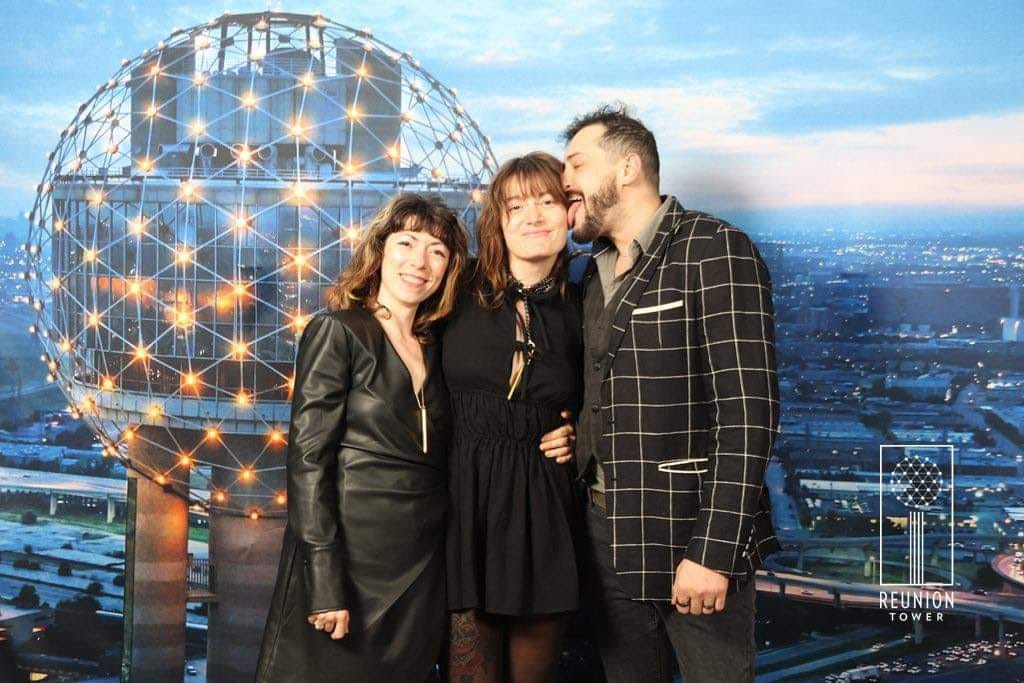I had my first polyamorous relationship when I was 20.
I can’t say I was excited about it. I just wanted the guy, really. But he came with strings attached. He was happy to be together, as long as he could be with other people too.
I had a hard time understanding. I was by default monogamous. I was open to trying, though; perhaps I’d like this “open” thing.
It quickly turned out that while my mind liked the idea of polyamory, my emotions did not. Anytime my partner slept with other people, I got angry, confused, and distant. We could chalk it up to a lack of safety in the relationship - that connection was pretty wobbly at its core - but the emotions persisted over my subsequent 13 years of mostly-open relationships.*
*You may ask: “Sara, if you don’t do well with polyamory, why have you had open relationships for the past 13 years?” My answer would be looking down, scuffing my shoe on the ground, and mumbling something like “polyamorists tend to have better communication and that’s really hot…”
Even in my 30s, married to a gorgeous, caring, ethically polyamorous man, I don’t consider myself polyamorous.
“Wait a second,” I hear you exclaim. “If you’ve been in polyamorous relationships for the better part of 13 years, doesn’t that make you polyamorous??
I’ve certainly slept with other people while in relationship (with consent). I like snuggling and being romantic with my friends. I struggle with my emotions when my husband Geof goes on dates, but I don’t ask him to be fully monogamous - it would be asking him to deny part of who he is.
Geof and I were recently asked to sort ourselves along a spectrum from being “ENM” (ethical non-monogamy) to “Monogamous”. We were at different places. Yet, we’re in deep relationship and agree on our actions.*
*though we did need to have a discussion about that later.
What gives??
I wrote this article to understand and untangle one of the most fascinating internal conflicts - maybe even the root of all internal conflict. What happens when our identity, preferences, and actions are misaligned?
I call this our internal API (Action, Preference, Identity) - How I act, What I want, Who I am.
When the API is aligned - when we are in sync with how we’re acting, what we want, and how we see ourselves - we are at peace. The communication between all parts of ourselves is flowing smoothly and mediated well.
But when what we want is not in line with what we’re doing - or what we’re doing is not in line with who we are (/see ourselves as) - or how we’re not acting in aligned with who we are - well, in those cases, we become conflicted.
Before talking more about this, I’ll give you some different situations that follow the same pattern - maybe ones in which you’ll see yourself. Notice if you feel any identity with these, and any internal contradiction or tension as you consider them.
You deeply want to be an entrepreneur, but you work for someone else. You’re not really sure where you fit when it comes to trading money for time.
You have a child, but sometimes you don’t feel like - or, shh, even want to be - a mother/father.
You were raised religious. You don’t go to temple or church as an adult; you may even feel conflicted about religion; but you still consider yourself Christian/Jewish/Muslim/etc.
You see yourself as a highly productive person, but you keep getting distracted.
What did you feel when you read these? Are there any other internal tensions or contradictions that they remind you of within your own psyche?
Before we go any further, let me make the case for why we should care to identify our APIs.
Misaligned APIs cause a lot of internal tension and pain, within us and then between ourselves and others.
For instance:
I might say I’m polyamorous, but feel immense pain when my partner connects with others.
If my preference is monogamy but my actions and stated identity are poly, my desires are in conflict with my identity and actions. My internal feeling is: “I don’t want this, but I have to do it/be it.”
If my internal identity is monogamous but my preferences and actions are polyamorous, my actions are in conflict with my identity. My internal feeling is: “I want this but I’m a bad person/wrong for wanting it.”
Think of a place you feel like a “bad person”. Perhaps you aren’t as productive, kind, focused, family-oriented, or organized as you want. You have a preference for these ways of being. You may even have an identity as a “person who is/does these things”. But since your actions aren’t aligned, you get what I call “Soul-Eaters”: gradual drains on your energy and joy. (I wrote about a process I use to resolve my Soul-Eaters in the article below.)
The rest of this post is for paid subscribers, an awesome tier you can get access to for only $6 a month. (Think of what else you use $6 for - one latte? For the price of that, you can get something great to read while you drink it ;)
In the rest of this article, we’ll talk about:
The story of a mental health API
How to resolve conflicts in your API
Why our exes only change AFTER we’re out of relationship
Read on…
Keep reading with a 7-day free trial
Subscribe to Sara’s Substack to keep reading this post and get 7 days of free access to the full post archives.







